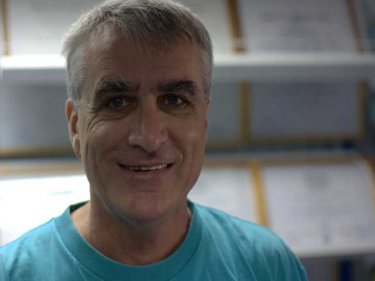Dr Nalinee Thongtham told Phuketwan: ''We as experts can say what the problems are but we have no power to determine the future of the coral reefs that bring so many visitors to the region.
''The authorities must act now. It can take eight or 10 years to restore the coral reefs, and the process must be properly managed. Once the reefs die off beyond a certain point, it will not be easy to bring them to life again.''
Phuket dive company consultant Guy ''Charlie'' Lidureau raised the alarm this week when he reported: ''I have just come back from five diving days at the Similans, Bon Tachai and Richelieu Rock. All coral reefs between the surface and 20 meters in depth are 60 percent to 80 percent dead, and at some dive spots100 percent dead.''
An extended hot high season at prolonged high sea temperatures caused the damage when Phuket's usual monsoon rains did not bring relief early enough.
Now experts are concerned to aid the recovery by environmental controls over the reefs and the diving industry - or face the end for Phuket's most vulnerable natural attraction.
Dr Nalinee said: ''The reefs are still beautiful and first-time divers in the region will still find them delightful. But regular divers can see the difference. Once the coral dies off beyond a certain point, it will not be easy to bring them back.''
Dr Nalinee said the need for the diving industry to make money was understood but the business has been operating without regulation, much to the concern of Mr Lidureau and other veteran Phuket operators.
''There is a vital need to fix and control what activities can be done in which areas,'' Dr Nalinee said. ''Regulations have to be introduced to control the number of divers, or the reefs will not survive this natural disaster, and the man-made disaster of overuse.''
Mr Lidureau said: ''What is happening this year in the Andaman Sea is must worse that the 2004 tsunami. Where coral reefs are completely dead, it will take at least 5-10 years to recover.
''The only places left to dive will be in deeper water below 20 meters and dive sites with large boulders as fishermen, storms and the El Nino bleaching phenomenon were not able to remove them.
''The Similans and Surin Island have only been open for three weeks so only a few people knew the truth.''
Mr Lidureau said the devastated reefs in Thailand and lack of fish will push dive tour operators and divers around the world to find alternative liveaboard dive destinations in other oceans for the coming years.
''Expect fewer reservations and more cancellations,'' he said.
Mr Lidureau, general manager of Seafarer Divers in Chalong, is an advocate of tighter environmental enforcement and restrictions on the number of day-trip and liveaboard divers, as well as a limit to the number of dive operators.
Latest A dangerous diesel fuel load on the bottom of the ocean concerns one of Phuket's leading environmental specialists less that the approach to Patong beach.
Patong 'Needs Marine Environmental Wake-Up'
Phuket Coral Reefs Still Hostage to Sunshine
Latest Storm clouds have helped to relieve the risk to Phuket's coral reefs but water temperatures remain high and the region's natural treasures are not yet safe.
Phuket Coral Reefs Still Hostage to Sunshine
Phuket Coral Bleaches White as Heat Intensifies
Latest Almost all of Thailand's coral reefs are bleaching and in danger of dying unless an unusual spell of heat breaks soon. Divers confirm the whitening, and greater jellyfish numbers.
Phuket Coral Bleaches White as Heat Intensifies
Trends: Toxic Tourists May Bleach Corals
The news is not good for Phuket and the region's precious coral. First came the threat of global warming and the Crown of Thorns starfish. Now there's a new and present danger: the toxic tourist.
Trends: Toxic Tourists May Bleach Corals
Phuket Laptop Thief Mars Coral Reef Conference
Latest The theft of laptops while two delegates were having breakfast mars a big international conference that may hold some answers to the bleaching of Phuket's irreplaceable coral reefs.
Phuket Laptop Thief Mars Coral Reef Conference





This is only the beginning of the natural disaster Phuket is waiting for... After Phuket will be able to cry only on itself cause this is what it deserves..
Posted by Dave on November 26, 2010 10:01
Editor Comment:
Dave, You've gotten out of bed on the wrong side. Go back, close you eyes for a couple of seconds, then get out on the other side. Your day will be much, much brighter.